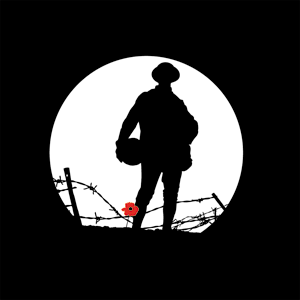
A Poppy for Our Thoughts
11.11.16
Ahead of the England vs Scotland game Mark Perryman responds to FIFA’s Poppies ban
The last time England played Scotland in a competitive match at Hampden Park was also in November, 1999, it was preceded by none of the manufactured row about whether the teams should have poppies embroidered on their shirts. The tabloids were more interested in a good old-fashioned football rivalry instead. The Sun greeting the fixture with the headline ‘Jocks Away’ while north of the border the Daily Recordsought to put England manager Kevin Keegan’ over-confidence in its place ‘Boastbusters’ with the unforgettable tagline ‘ Scots v The Auld Enemy : See Pages 2,3,4,5,6.7,62,63,64,65,66, 67 & 68.’ This was pre Salmond and Sturgeon, the irresistible rise of the SNP and the near wipeout of Scottish Labour MPs. And it was before UKip’s forward march too,. Culminating in #Torybrexit , a populist version of English nationalism against all things that Europe, and Scotland seems to represent in terms of broadly social-democratic values versus a neoliberal free-for-all.
None of this entirely explains the row over the players’ wearing poppies but it does provide a context . It is the same with the emergence of a warped English patriotism that reduces the heroism and sacrifice of those who gave their lives to defend this country in World War Two to just another football chant ‘Two World Wars and One World Cup’ . Scarcely present in ’66 when England were beating West Germany in the final, with the Charlton brothers in the side who had vivid memories of growing up during bombing raids on Tyneside while a decent chunk of England’s support in the stands were of an age who’d fought in that war too. Instead the chants emerged after England’s loss to West Germany on penalties at Italia ’90, cranked up again by the same result to the same opponents at Euro ’96. And all this during an era when euroscepticism led by John Major’s ‘bastards’ opposition on the Tory benches emerged to force a key dividing line in British politics.
This is the context for the current row . An act of remembrance is not of itself political. But who are we rememberjng? What did they fight for ? Where did they come from to join that fight? The clue is in the title of the two conflicts being marked World Wars One and Two. Britain had a special role as combatants in both but we were not alone. The teams of France, Belgium, Holland, Denmark, Norway, or from further field the Commonwealth countries, the USA, USSR are not clamouring to wear a poppy on their shirts this November. When it becomes all about just the home nations while playing internationals the meaning inevitably changes.
FIFA bans all political symbols from adorning any national kits. The Irish are threatened with being punished for embroidering the Easter Rising centenary on to theirs. Almost every FIFA-affiliated country could make a similar case from South Africa and Israel via Armenia and Palestine to Syria and the Ukraine. The Tuesday after England play Scotland they take on Spain in the 80th anniversary year of British and others countries’ volunteers travelling to Spain to join the defence of the Spanish Republic against Franco’s fascists. Is the FA suggesting the England team wear something to mark this special moment of solidarity between our two countries? No, no such suggestion. Some symbols are OK. Others not, a choice made by politics.
We cannot escape the fact that sport is political, it is a contest just like the one on the pitch. Currently in American sport there is a growing movement of athlete-activism . The NFL player Colin Kaepernick kneeling respectfully but defiantly during the playing of the National Anthem because for millions of Americans, despite Trump, #BlackLivesMatter. When USA Women’s Football International, World Cup winner and Olympic Football Gold medallist Megan Rapinoe did the same whilst representing her country she was doing something unheard of over here.
Or maybe not. Gary Lineker has been hounded by the tabloids for his views on refugees not just because for what he is saying, but for who he is and was. A footballer, with views, with politics ? What right does he have to hold such opinions? But of course sport is full of opinions, some of which we agree with others we don’t.
I won’t attempt to predict the England v Scotland score but two things I can be certain of. There won’t be a single Union Jack waved by England fans whereas 50 years ago when England hosted the World Cup the FA managed to get the host country’s flag wrong on all official publicity, the Union Jack not the St George Cross . And there will be plenty of chants inviting the Scots impolitely to stick Nicola Sturgeon somewhere rude. That last time these two teams met in a competitive match, back in '99, I doubt many could have named the SNP leader let alone be much bothered about him.
My beef isn’t with the poppy nor acts of remembrance. The state-sanctioned patriotism serves to obscure the consequences of carnage from the causes of conflict but that is something to contest not retreat from. The argument should be bigger than this annual dust-up over the poppy. It is about breaking down the false division between sport and politics, to recognise that all sport is political, and for those of us with a progressive vision we have a role in shifting those politics on, and off the pitch, from the reactionary to our side, whatever team we support or none.
Mark Perryman is the co-founder of the self-styled ‘sporting outfitters of intellectual distinction’ akaPhilosophy Football from where the 1914 Poppies Remembrance T-shirt is available.